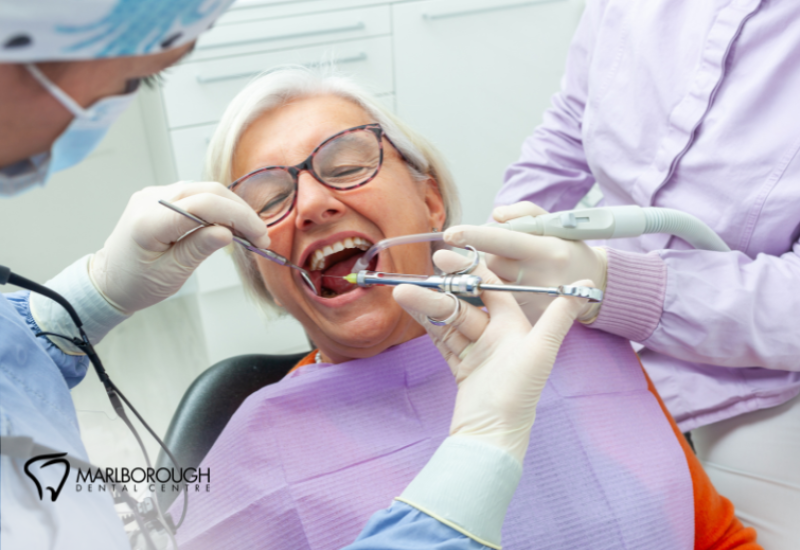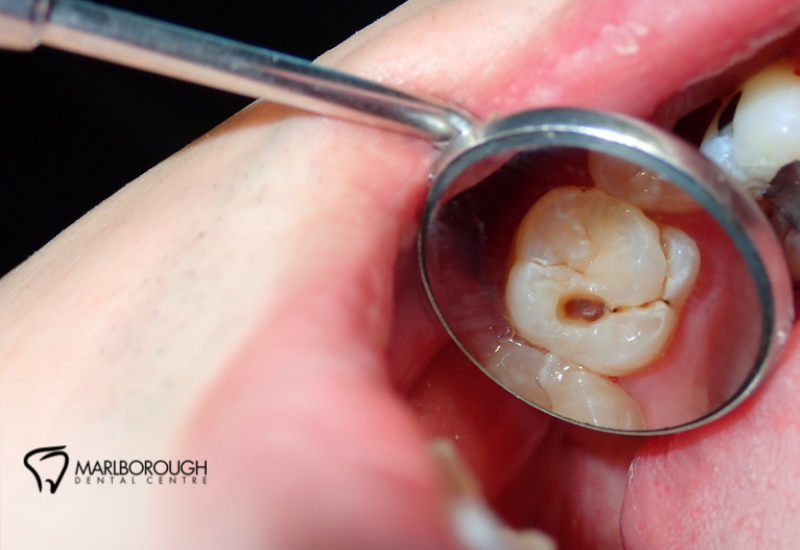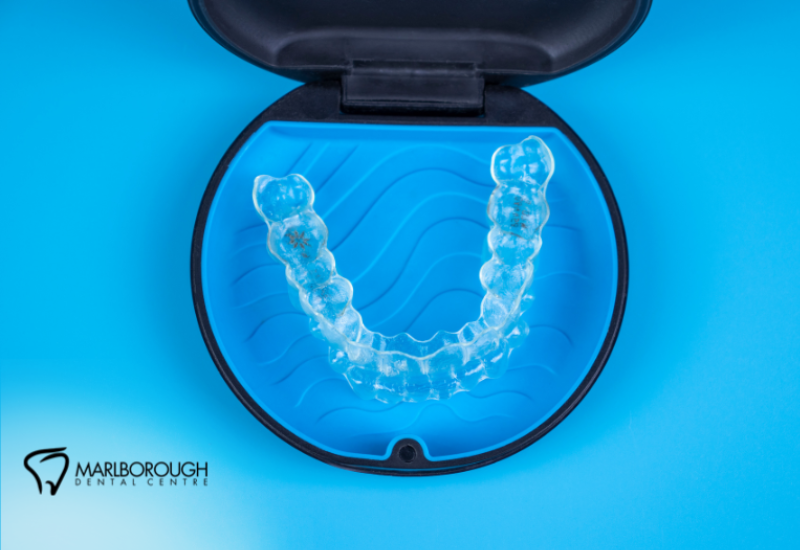The state of your mouth says a lot about your overall wellness. Schedule regular visits to your dental hygienist and use the following oral care tools to keep your teeth,gums and whole body healthy.
There is a direct relationship between the health of your mouth and your overall physical health.
Visiting your dentist regularly can help promote your oral health and reduce your risk of developing other health issues including:
- Diabetes
- Cancer
- Heart disease
- Stroke
Affordable Teeth Cleanings With a Registered Calgary Dental Hygienist
One of the best ways of maintaining the health of your gums, teeth and body is by scheduling regular visits to your local dental hygienist.
At Marlborough Dental Centre, we offer a wide range of oral services in addition to teeth cleanings including Invisalign, wisdom tooth removal and sedation dentistry to meet the unique dental needs of your entire family.
Want to know how we can help you?
Top Oral Care Tools For a Healthy, Happy Mouth
When it comes to good oral preventative care, dentists agree that the tools you use are just as important as the technique. If you are unsure of what to use, your dental hygienist can help you make good teeth-cleaning choices to keep your smile bright and mouth healthy.
Here are just a few oral care tools you may want to consider:
1. Toothbrush & Floss
Brushing and flossing daily makes your mouth feel clean, but there are other very important reason why employing these tools is so great.
Doing so regularly removes tiny food particles from your teeth, prevents plaque from building up, and lowers your risk of:
- Developing cavities
- Periodontal disease
- Tooth loss
- Weakened enamel
How to choose the right toothbrush
With so many shapes, sizes and styles, choosing the right kind of toothbrush can be confusing. Most dentists suggest looking out for these factors when selecting:
-
Type of bristle: Soft bristled brushes are the best for removing plaque and debris without damaging your enamel.
-
Toothbrush head: Consider the toothbrush’s head when selecting your tool of choice. Make sure that it fits comfortably in your mouth, allowing the bristles to reach your backmost molars.
-
Consider an electric toothbrush: For many patients, a powered toothbrush is a great alternative. It does a better job of cleaning teeth, especially for younger patients and those who have limited manual dexterity.
How to choose the right floss
If you are uncertain about which type of floss to use, it’s best to consult your dental hygienist first. However, here are some points you may find helpful:
- Do you have large gaps between your teeth? Try dental tape or super floss
- Do you have small gaps between your teeth? Waxed floss slides easier into tight spaces
- Want less mess? Look for disposable flossers or floss in pre-measured strands
- Braces or bridges? A spongy floss is a good option but any floss can be used if you have a floss threader.
HOW TO FLOSS WHEN WEARING BRACES
2. Tongue Scrapers
A tongue scraper is a very useful dental tool and recommended by most dentists because it helps remove bacteria, food debris, fungi, toxins and dead cells from the surface of the tongue.
It has many benefits including:
- Eliminates bad breath by removing oral bacteria
- Boosts your overall immunity
- Lowers your risk of gum recession, gum disease and tooth decay
- Allows you to enjoy the flavors of your food more by opening up the pores on your tongue
- Promotes saliva production, which aids in digestion
3. Oral Irrigator
An oral irrigator is a pulsed water-jet device which is used to remove plaque and debris which cannot be removed by brushing and flossing alone.While dental hygienists often recommend an oral irrigator to patients with periodontal disease or orthodontic devices, it has many benefits for everyone, including:
- Fresher breath
- Lower risk of gum disease
- Easier and much more effective way of cleaning between your teeth than flossing
- Improved gum health
Remember: While brushing, flossing and using an oral irrigator are great ways to protect your oral health, it is still important to schedule regular visits to your dentist or dental hygienist in addition to your current routine.
4. Mouthwash
The main function of most mouthwashes is to freshen the breath. They DO NOT replace a regular oral hygiene routine of brushing and flossing. When choosing the right mouthwash, here are some factors to keep in mind:
-
Dilute if necessary: Different mouthwash brands have different concentrations and while some may recommend you dilute them, others don’t. Always follow the instructions on the label to get the full benefit of the product.
-
Mouthwash is NOT a replacement: Even if your dentist recommends a mouthwash, you still need to follow your oral care routine to maintain good dental health.
-
Timing is important: One of the keys to using mouthwash correctly is to swish it in your mouth for the correct amount of time. Typically, most recommend that you use it for 30-60 seconds before spitting it out.
Call Today
To find out more about how our Calgary dentists can help you maintain good oral hygiene, contact our dental office at (403) 248-2066 or fill in our online contact form.



